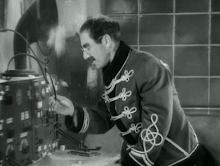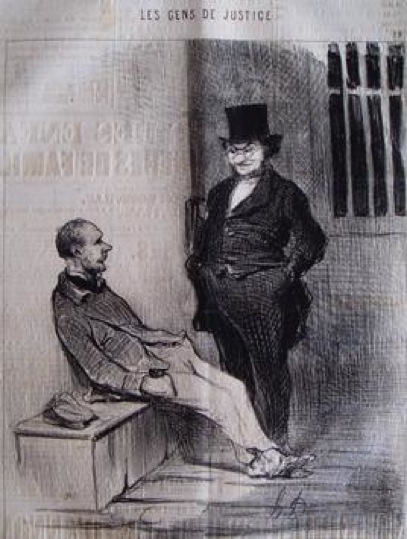Praise of Centrism in itself might have been too banal for me to notice; it was really the "Warren Buffett centrism" branding that did it. The constant veneration of Warren Buffett in elite middlebrow circles has always bothered me. I have never heard him say anything that worthwhile. His distinction seems to be that he is a very rich person and that he is Folksy, rather than speaking in the traditional pseudoscientific managerial Harvard-Business-School jargon of the ruling class: he is just like us, only better, because he dominates a large reinsurance entity. He can be counted on to tell us that whoa hey, corporate accounting practices can be self-serving, and that, if the past is any guide, the stock market tends to go up over the long term even if it looks bad now, so let's all put some money in it. And, according to Tom Friedman, Warren Buffett also says that "whatever he achieved in life was due primarily to the fact that he was born in this country -- America -- at this time, with all of its advantages and opportunities." Like the first two Buffett platitudes I paraphrased, this isn't that off the mark (though far be it from me to endorse investing money in the stock market): of course rich Americans owe their wealth to America's military/economic world domination, rather than to some kind of transhistorical divine gift for sucking money out of the rest of the world and making it stick to them. And Tom Friedman’s partially-imaginary but to a large extent all-too-real community of "Warren Buffett centrists" similarly owe their economic privilege to US domination, and their political perspective is informed by the desire to expand or at least maintain this privilege.
This is about where I erased the post I had written. I sort of didn’t want to yell into the void at this guy just for filling the heads of the NYT's readership incrementally higher with this kind of nonsense. The typical American-entrepreneurial-exceptionalist crap followed the Buffett part--the inevitable imperalist argument that whatever increases America’s power also saves the world: "I believe that without a strong America -- which, at its best, can deliver more goods and goodness to its own citizens and to the world than any other nation -- our kids and many others around the world will not have those opportunities." This is terrible, and it has been noted a million times before that it is terrible, to minimal effect. Noting it again on the internet, in the context of this silly little Tom Friedman product, is sort of useless. It's just always bothersome how resilient this propaganda line is. But it probably shouldn’t be. It is totally in the NYT readership’s self-interest--and the broader American public’s self interest--to accept this uncritically, and the American public has been bombarded by it all day every day for the last hundred years.
But since I have in fact been sucked back into commenting on Tom Friedman, I am in fact going to make fun of two things in the column:
First, this passage:
I am convinced that this kind of nation-building at home is exactly what Mr. Obama is trying to deliver, and should be his unifying call: We need universal health care because it would strengthen our social fabric and enable our businesses to better compete globally. We need to upgrade our schools because no child in 21st-century America should be left behind and because we cannot compete for the best new jobs without doing so. We need a greener economy, not just to mitigate climate change, but because a world growing from 6.7 billion people to 9.2 billion by 2050 is going to demand more and more clean energy and water, and the country that develops the most clean technologies is going to have the most energy security, national security, economic security, innovative companies and global respect.I defy anyone to put more silly talking points into three sentences. I am actually sort of awed by its grand clattering crescendo of Mosts. If by some unholy power an Organizing For America email blast and Monsanto greenwashing arm producemoreconservemore.com were to copulate and produce an extremely hyperactive child--that child would be this paragraph made flesh. May God have mercy on our miserable souls.
Second, this Expert:
"Obama's election marked a shift -- from a politics that celebrated privatized concerns to a politics that recognized the need for effective government and larger public purposes. Across the political spectrum, people understood that national renewal requires big ambition, and a better kind of politics," said the Harvard political theorist Michael Sandel, author of the new best seller -- "Justice: What’s the Right Thing to Do?" -- that calls for elevating our public discourse.Yeah. Good job, Harvard. That’s some sweeeeeet analysis.
I vow not to devote any more text to Tom Friedman.













That video is so necessary. I was just reading, in Chomsky's 'Necessary Illusions', about this guy's 'reporting' of the Israel/Palestine 'peace process' back in the day when he was based in Jerusalem for NYT. He is a horrible little man.
ReplyDelete